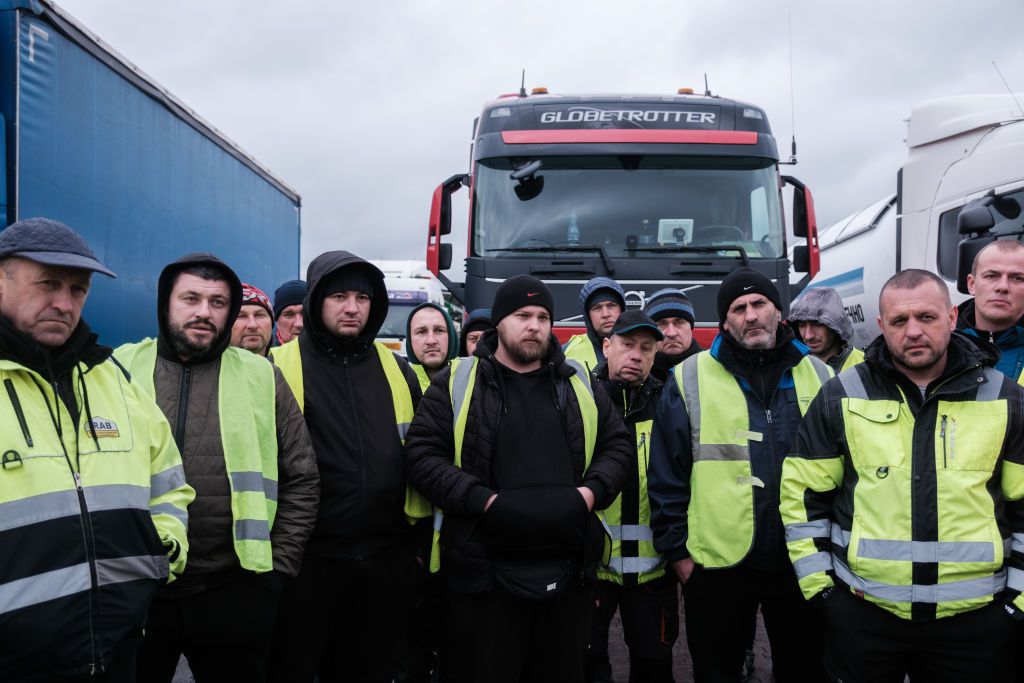State Border Guard: About 1,300 trucks in line to enter Ukraine from Poland, no delays in checks

Roughly 1,300 trucks are currently waiting in line at the Polish border with Ukraine, but the pace of passing the border has been quicker after the blockade was completely lifted, State Border Guard spokesperson Andrii Demchenko said on Jan. 28.
Polish truckers began blocking four crossings with Ukraine in November in protest of the EU's liberalization of transit rules for Ukrainian truckers. The blockade resulted in huge lines on both sides of the border, stranding drivers in freezing temperatures.
"The movement of freight vehicles is not blocked anywhere," Demchenko said on television. "The activity and intensity of border crossing by trucks remains quite high."
About 3,000 vehicles cross the border daily both to enter and leave Ukraine at these four crossings in the west, according to Demchenko. Due to the current increased speed of border crossing, the truck drivers won't have to wait a long time even if the queue has been increasing over the past couple of days, he added.
Earlier on Jan. 16, the Ukrainian-Polish border was fully unblocked when the blockade of the last blocked checkpoint was lifted after more than two months of protest. This followed an agreement between Warsaw and the Polish truckers, who said they would suspend their border blockade until March 1.
The permit issue has been at the heart of the Winter protest and blockade by Polish truck drivers, who have at times been joined by their counterparts in Slovakia and Hungary.
Before Russia's full-scale invasion, Ukrainian truckers had to apply for permits to enter the EU, adding an extra step to the process. The need for permits was temporarily suspended in June 2022 as part of the EU's Solidarity Lanes Initiative to help alleviate pressure on Ukraine's export industry caused by Russia's blockade of the Black Sea.
The temporary suspension was extended until June 2024.
Polish truckers say the suspension of the permit system has caused a massive influx of Ukrainian goods to the EU, which Kubrakov's figures support. Representatives of Polish and Slovak truckers also say that the transport of goods is undercutting business in their respective countries, which Ukrainian officials deny.
In peacetime, the majority of Ukraine's exports left through the Black Sea, but with the Russian blockade and subsequent collapse of the Black Sea Grain Initiative, exports had to be redirected overland.













